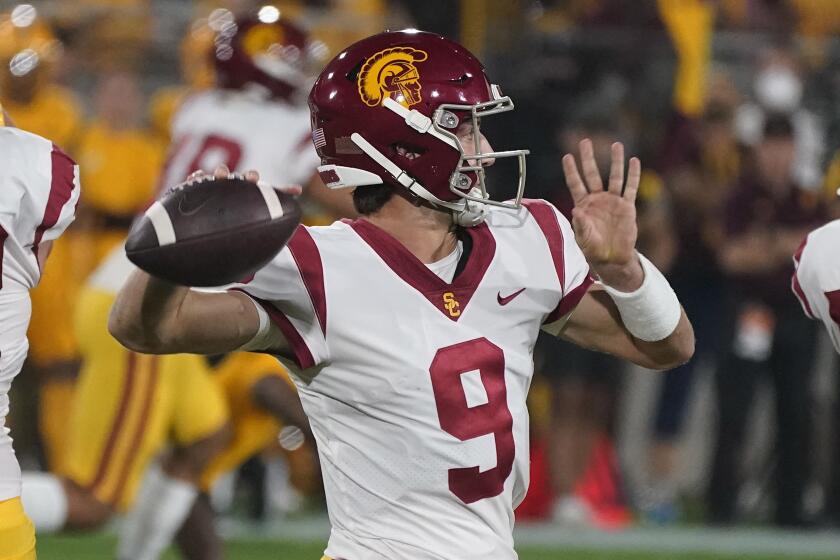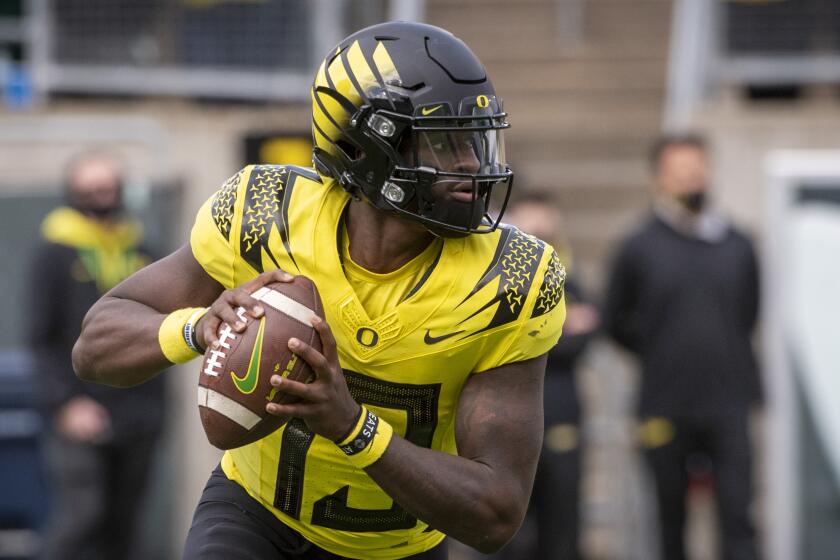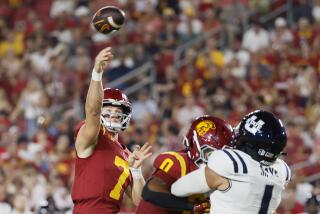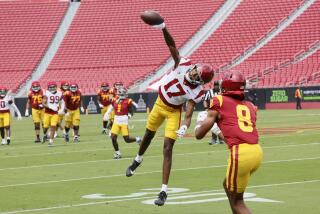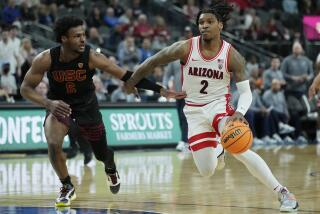USC takeaways: Trojans left with more questions after loss to Arizona State
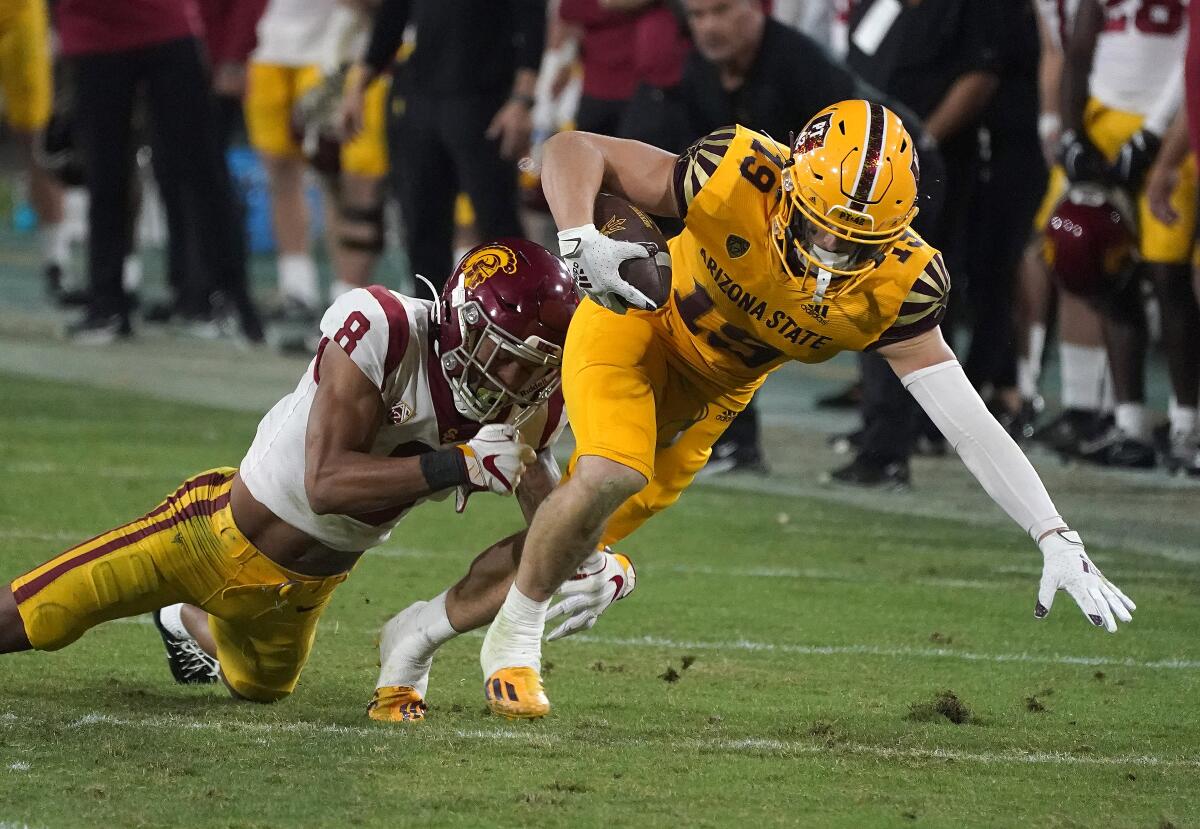
Another week, another bleak performance for USC, which came to the desert in search of answers and left with more questions. With time running out for USC to earn a bowl bid, an ill-advised quarterback rotation may only be the least of its worries in the wake of a 31-16 loss to Arizona State.
Here’s what we took away from USC’s trip to Tempe:
Life without London
No one was under the delusion USC could simply replace Drake London, one of the top receivers in the nation, with one person and call it a day. But the collective effort from its passing attack on Saturday begged the question of whether USC will be able to score at all without him going forward.
A heavy dose of man coverage from Arizona State dared USC’s fleet of unproven receivers to make plays. But they never materialized. Tahj Washington led the team with a career-high nine catches, but most of his damage was done on short screens or intermediate routes. Gary Bryant Jr. led in targets (15), but only converted six of them to catches.
The rest of USC’s wideouts worked in a muddled rotation that included Kyle Ford, Joseph Manjack and Michael Jackson III, among others. But none was able to make much of an impact, whether due to the coverage they faced or the inability of USC’s quarterbacks to find them down the field.
Bryant said that Arizona State came out with a different defensive approach than they’d expected from watching film. Kedon Slovis was more blunt about USC’s first game without his top target.
“We got exposed,” the junior quarterback said.
Kedon Slovis and Jaxson Dart both got their chances against the Sun Devils but struggled to generate momentum in USC’s 31-16 loss to Arizona State.
Bottled up
Emphasizing the run seemed like the obvious choice to reboot an offense now in need of a new focal point. Turns out, that’s exactly what Arizona State was expecting from USC.
The Sun Devils set out specifically to stop the run and were wildly successful. The Trojans, who had finally reestablished their run game in recent weeks, were not.
Keaontay Ingram had rushed for 342 yards over the previous two weeks, taking the reins as USC’s workhorse when it needed him most. But there was only so much he could do Saturday with Arizona State’s front bearing down on him and USC’s offense unable to counter with passes down the field.
Ingram broke off one 24-yard run in the second quarter and a 15-yard scamper in the third. His dozen other carries went for a meager 15 yards total. He didn’t play at all in the fourth quarter as he dealt with an injury that USC interim coach Donte Williams said was “day-to-day”.
“That hurt us a lot,” Williams said of Ingram’s tough night. “We depend on him. He’s a big-time player, and this is a big-time game.”
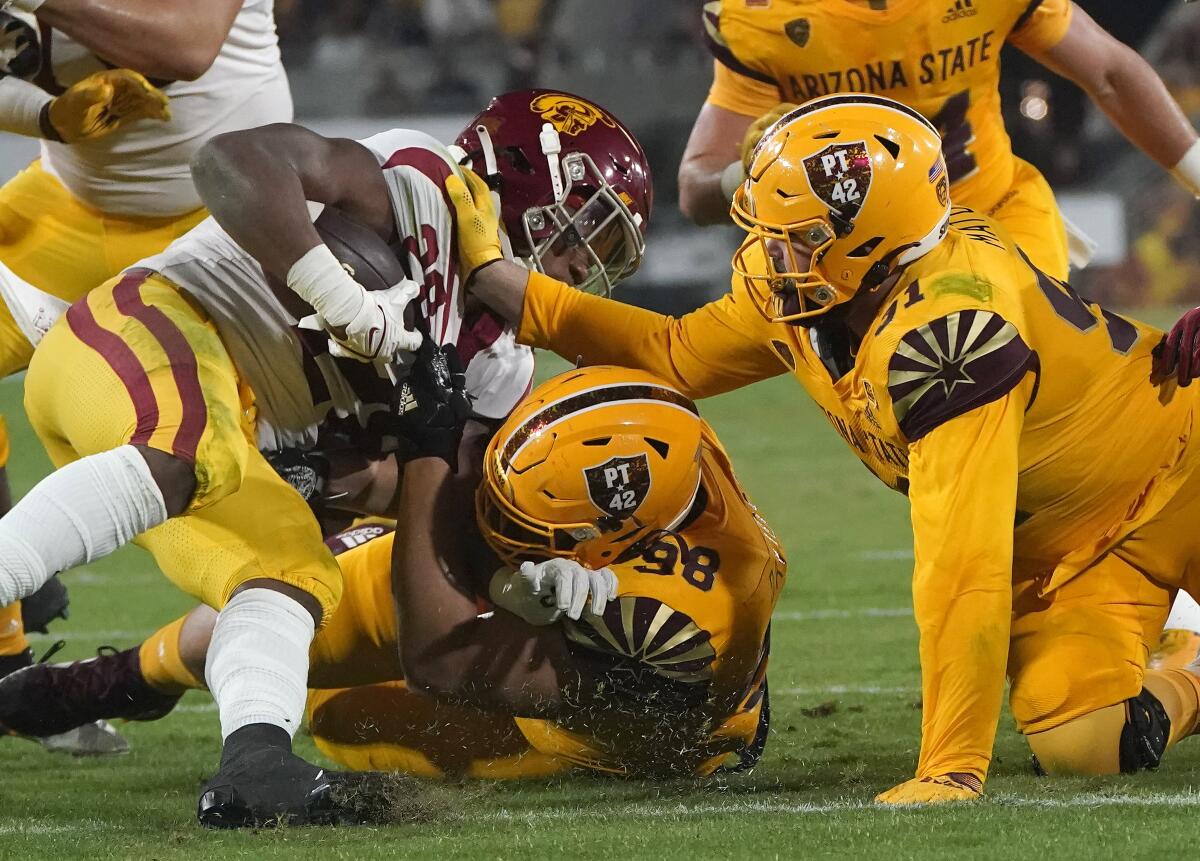
Tackling woes
As Arizona State’s Rachaad White caught a pass out of the backfield in the second quarter, he was met pretty quickly by a cadre of USC defenders, none of whom seemed all that interested in tackling him.
White instead rumbled to a 26-yard gain, shaking off some Trojan tacklers, while carrying several others with him. One play later, White burst through a hole and sprinted the remaining 47 yards for the touchdown.
For a USC defense that’s struggled tackling most of the season, it was just the latest reminder of its inability to identify a problem and fix it. Williams said it was the most frustrating aspect of USC’s many defensive issues.
“I believe we have really good players, and they’re capable of making those plays,” Williams said. “At the same time, they didn’t.”
After winning big over its rival, Michigan State will come off an emotional week and beat Purdue, and Oregon will reassert its Pac-12 dominance.
Alford shines
One defender did make those plays when called upon. Xavion Alford transferred from Texas to USC in search of opportunity last summer, and over the last three games, he’s finally had that chance.
He took advantage on Saturday night, stealing away two interceptions. But USC wasn’t able to convert either opportunity into points.
Outside of freshman Calen Bullock, who has been a bright spot in a dark season, the safety position has particularly been a problem for USC’s defense. Senior Isaiah Pola-Mao has struggled mightily, while Chase Williams, his counterpart, hasn’t been much better. If Alford is able to build on his breakout performance, he might be able to carve out a nice role over the final three weeks of the season.
More to Read
Go beyond the scoreboard
Get the latest on L.A.'s teams in the daily Sports Report newsletter.
You may occasionally receive promotional content from the Los Angeles Times.

